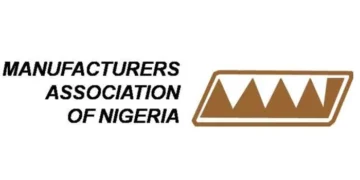The Nigerian private sector continued to expand in August, driven by improved customer demand and softer inflationary pressures. The Purchasing Managers’ Index (PMI) rose to 54.2.
The growth was fueled by sharper increases in output and new orders, with firms reporting stronger customer demand and a greater willingness to commit to new projects, according to the latest Stanbic IBTC Bank Purchasing Managers’ Index (PMI) report.
At 54.2 in August, the headline PMI was above the 50.0 no-change mark for the ninth month running, signalling a sustained improvement in the health of the Nigerian private sector. Moreover, the latest reading was up from 54.0 in July, pointing to a solid strengthening of business conditions, the most pronounced since April.
The report said, “The rise in the headline index primarily reflected sharper expansions in output and new orders, with rates of growth hitting four- and 19-month highs, respectively. Panellists reported stronger customer demand and a greater client willingness to commit to new projects.
“Output increased across three of the four broad sectors covered by the survey, except manufacturing. While firms continued to expand staffing levels in response to higher new orders, the rate of job creation was only slight and softer than that seen in July.
“Companies were nonetheless able to deplete outstanding business for the first time in five months. A slower increase in purchasing activity was also registered in August. Nonetheless, input buying rose markedly in response to improving customer demand, with positive expectations for the future also encouraging firms to accumulate inventories.”
The head of Equity Research West Africa at Stanbic IBTC Bank, Muyiwa Oni, said, ” Business activity increased further in August and has remained above 50 points for the ninth consecutive month. Sharper increases in output and new orders drove the increase in business activity.
“Given these higher new orders, firms expanded their staffing levels for the third consecutive month. The opening of new branches and marketing plans is also supporting firms’ optimism that output will increase over the coming year.”
He pointed out that “elsewhere, input cost eased to its lowest level since March 2023, even as the latest increase is still above the series average. In line with this, the growth in output prices moderated for the fourth consecutive month in August, the slowest since April 2020.
“The continued moderation of input and output prices still suggests that inflation is likely to remain soft in the near term, and may incentivise the MPC of the CBN to switch to an accommodative monetary policy by September from the current neutral stance.”
Oni stated that “We estimate headline inflation to moderate further in August to 21.45 per cent year-on-year, and possibly settle at 17.19 per cent Y-o-Y to 17.92 per cent Y-o-Y by November. Accordingly, we still expect up to 150 bps cumulative rate cut in 2025.”
He emphasised that “overall, the Nigerian economy is still on track to grow by 3.5 per cent Y-o-Y in 2025 from 3.4 per cent Y-o-Y growth seen in 2024, supported by softer inflation, improvement in FX liquidity conditions, and structural reforms.”





